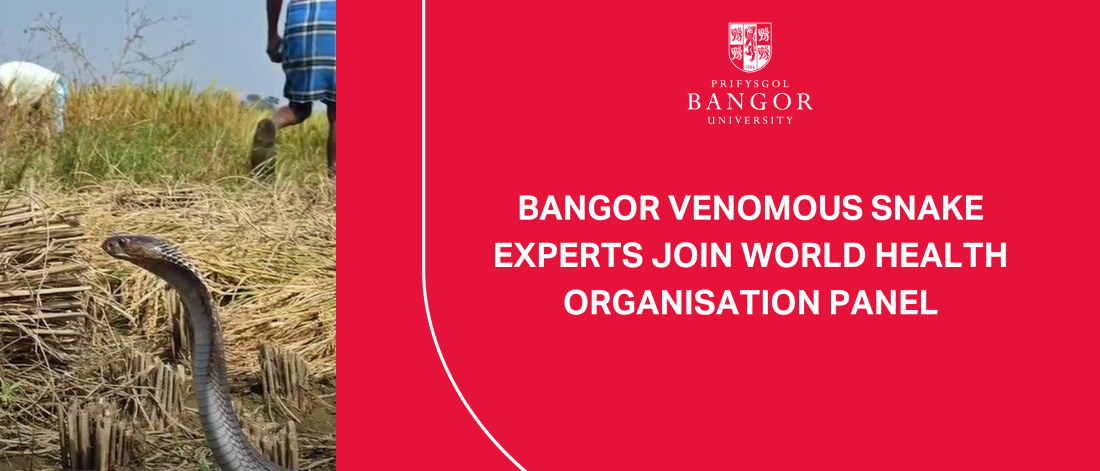In 2019, the WHO launched its roadmap the tackle the neglected topic of snakebite, a potentially life-threatening disease caused by toxins in the bite of a venomous snake. Snakebites cause up to 138,000 deaths and leaves another 400,000 people with permanent disabilities annually.
Drs Anita Malhotra and Wolfgang Wüster of the University’s School of Natural Sciences join the newly announced roster of experts who will help the WHO to tackle the challenges of implementing this roadmap.
While Drs Malhotra and Wüster have been working on venomous snakes across the world for decades, more recently they have focused their efforts in India, where 50% of the global deaths from snakebite occur.
Dr Anita Malhotra commented:
“Doing research can be really hard work it involves really long hours, and quite challenging fieldwork, so it’s really nice to have one’s efforts acknowledged.”
Dr Wolfgang Wüster said:
“Generating new knowledge is wonderfully rewarding, but applying it in a way that it may contribute to saving lives just makes it all so much more rewarding.”
Their expertise also directly benefits students studying Zoology with Herpetology at Bangor, the only such degree in the UK, with opportunities to learn about how to study snakes and their venom and take part in laboratory training and fieldwork.
More information on their work in India can be found at bites.bangor.ac.uk.
Link to Dr Malhotra’s recent discussion about snakebite issues:

Two Bangor venomous snake experts join World Health Organisation panel
Two renowned international academics at Bangor University have been appointed to a World Health Organisation (WHO) panel of experts.




